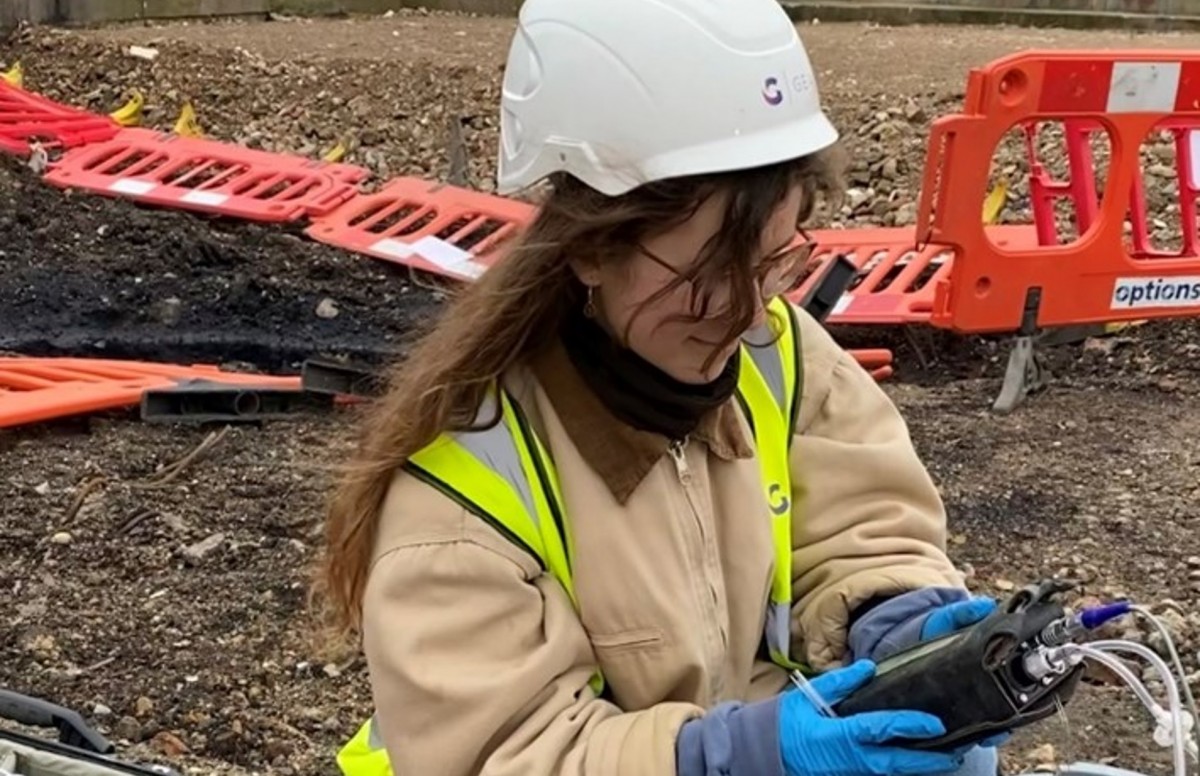How Geotheta can Save You Time, Stress, and Money.
How Geotheta can Save You Time, Stress, and Money.
Blog Article
Geotheta - Truths
Table of ContentsGeotheta Things To Know Before You Get ThisThe Single Strategy To Use For GeothetaThe Geotheta StatementsThe 4-Minute Rule for GeothetaAn Unbiased View of Geotheta

They conduct site investigations, collect samples, carry out lab tests, and examine data to evaluate the suitability of the ground for construction projects - Engineer of Record. Based upon their searchings for, geotechnical designers provide recommendations for structure layout, incline security, retaining frameworks, and mitigation of geotechnical dangers. They team up with various other experts, such as designers, structural engineers, and construction groups, to make certain that geotechnical factors to consider are incorporated into the overall project layout and execution
By examining the habits and buildings of dirt and rock, they can determine potential geotechnical threats such as landslides, dirt settlement, or incline instability. Their know-how assists avoid failings or mishaps that could endanger lives and residential or commercial property. Below are some in-depth responsibilities and responsibilities of a geotechnical designer: Site Examination: Geotechnical designers conduct website examinations to collect data on subsurface conditions.
They translate the data to understand the homes and actions of the soil and rock, including their toughness, permeability, compaction attributes, and groundwater conditions. Geotechnical Analysis and Design: Geotechnical engineers examine the information gathered throughout site examinations to examine the security and suitability of the site for construction jobs. They do geotechnical estimations and modeling to assess factors such as birthing ability, settlement, slope stability, side earth pressures, and groundwater flow.
A Biased View of Geotheta
Structure Layout: Geotechnical engineers play a vital duty in developing structures that can securely support the designated structure. They evaluate the dirt problems and load demands to identify the proper foundation type, such as shallow foundations (e.g., grounds), deep foundations (e.g (https://disqus.com/by/geotheta/about/)., stacks), or specialized techniques like dirt enhancement. They consider aspects such as settlement limitations, birthing capability, and soil-structure communication to create optimum foundation styles
They assess construction strategies, monitor site activities, and conduct area assessments to verify that the design referrals are complied with. If unanticipated geotechnical problems occur, they examine the circumstance and give recommendations for remediation or modifications to the layout. Threat Assessment and Reduction: Geotechnical engineers assess geotechnical risks and threats related to the job site, such as landslides, liquefaction, or dirt disintegration.

Cooperation and Interaction: Geotechnical engineers function very closely with various other specialists included in a project, such as architects, architectural designers, and building teams. Effective interaction and partnership are necessary to incorporate geotechnical considerations into the general task style and building and construction process. Geotechnical engineers supply technical expertise, answer queries, and guarantee that geotechnical needs are satisfied.
Excitement About Geotheta
Right here are some kinds of geotechnical engineers: Structure Engineer: Structure engineers concentrate on designing and analyzing foundations for structures. They assess the dirt problems, lots requirements, and site attributes to figure out one of the most ideal structure kind and design, such as superficial structures, deep foundations, or specialized methods like pile structures.
They assess the aspects affecting incline security, such as soil buildings, groundwater problems, and incline geometry, and establish strategies to avoid incline failings and minimize risks. Quake Designer: Earthquake engineers focus on evaluating and creating frameworks to withstand seismic pressures. They examine the seismic threat of a site, evaluate dirt liquefaction possibility, and establish seismic layout criteria to guarantee the safety and security and strength of frameworks throughout earthquakes.
They execute field screening, collect examples, and examine the collected data to define the dirt homes, geologic formations, and groundwater problems at a site. Geotechnical Instrumentation Designer: Geotechnical instrumentation engineers focus on tracking and gauging the actions of dirt, rock, and structures. They set up and preserve instrumentation systems that keep track of factors such as dirt settlement, groundwater levels, incline activities, and structural variations to evaluate performance and give very early warnings of prospective problems.
Unknown Facts About Geotheta
They perform examinations such as triaxial tests, combination tests, direct shear tests, and permeability examinations to gather data for geotechnical evaluation and style. Geosynthetics Designer: Geosynthetics designers focus on the layout and application of geosynthetic products, such as geotextiles, geogrids, and geomembranes. They use these products to boost soil stability, enhance inclines, give drain services, and control erosion.
They tend to be investigatory people, which means they're intellectual, reflective, and inquisitive. They are curious, methodical, rational, analytical, and rational. Some of them are additionally social, implying they're kind, charitable, participating, individual, caring, useful, empathetic, tactful, and friendly - Consulting Engineer.
In the workplace atmosphere, geotechnical designers make use of specialized software program tools to carry out estimations, create styles, and examine data. They prepare reports, review task specs, communicate with customers and team members, and coordinate job activities. The workplace setting provides a helpful setting for research, evaluation, and cooperation with various other specialists included in the job.
4 Easy Facts About Geotheta Described
They frequently see project websites to perform website investigations, assess geotechnical problems, and collect data for analysis. These check outs include traveling to different places, often in remote or difficult terrains. Geotechnical designers might do soil tasting, conduct examinations, and display building and construction activities to make sure that the geotechnical elements of the project are being applied appropriately.
Geotechnical engineers also function in specialized geotechnical laboratories. Geotechnical lab designers function thoroughly in these environments, dealing with testing devices, running you can try here instruments, and taping information.
Report this page